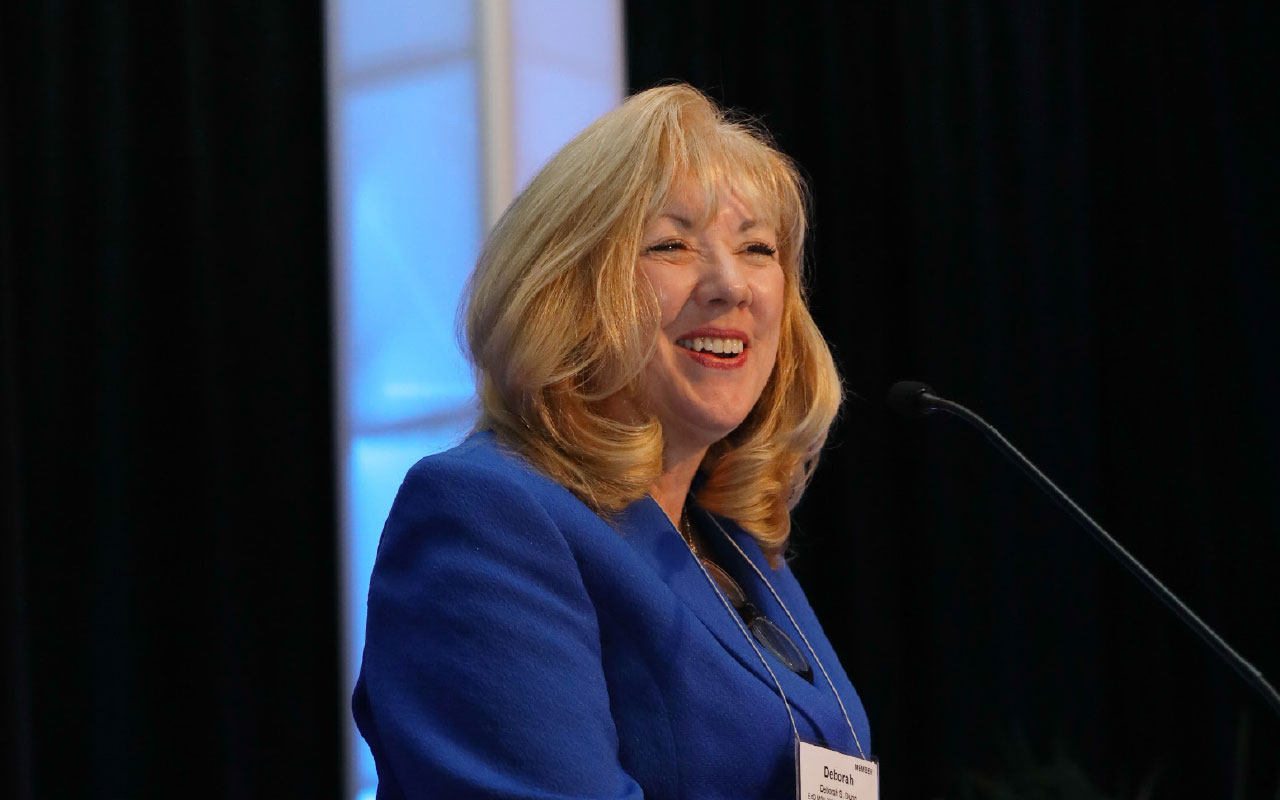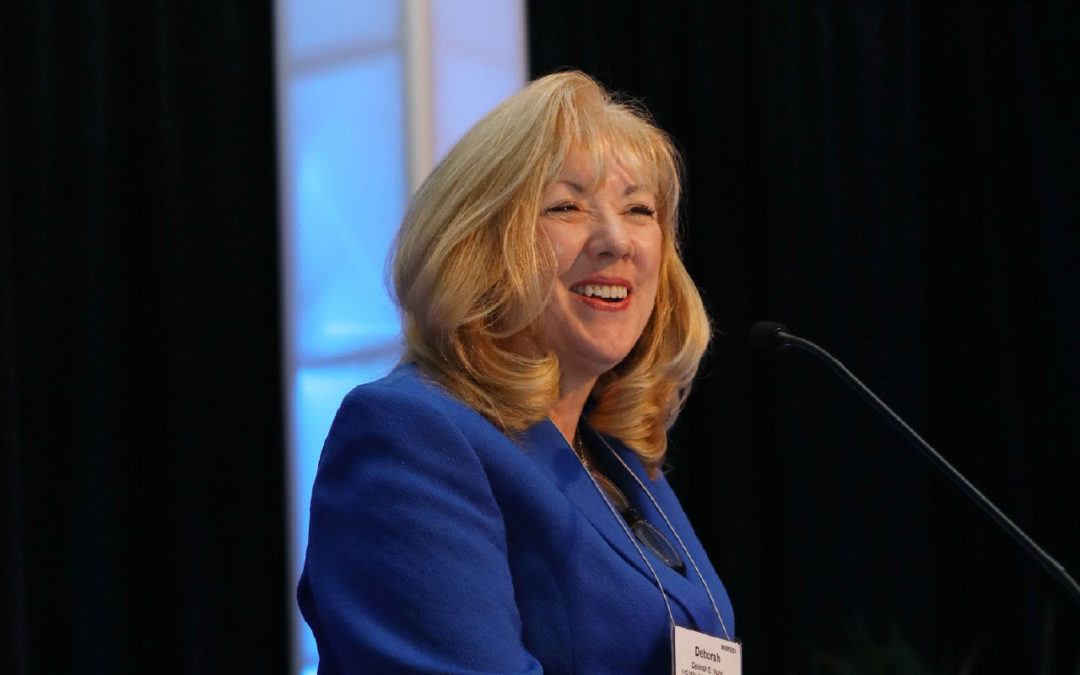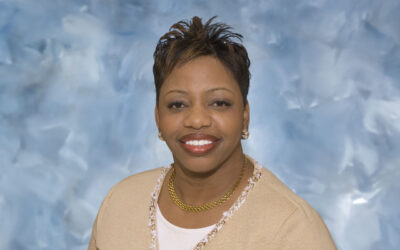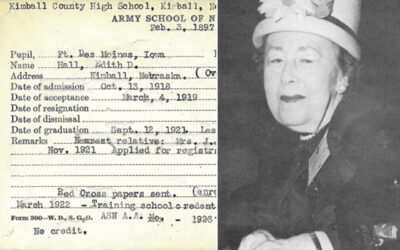
By Matt Skoufalos
When Gerontological Advanced Practice Nurses Association (GAPNA) Past-President Deborah Dunn first began to consider a career in nursing, the path many young professionals pursued involved getting an LPN certificate or job-specific associate degree. At the same time, the increasing integration of technology into hospital practices was driving a shift in the field; to meet the higher threshold of these new demands, young nurses were encouraged to pursue advanced degrees in order to keep up.
“The career paths were not as broad as they are today,” Dunn said. “I always had a huge interest in health and helping people, and that developed throughout high school.”
“The nursing profession itself was pushing four-year degrees at that time, and I was really fortunate that I got wind of that,” she said. “I didn’t have anybody in the family who was a nurse; I didn’t have anyone other than a high-school counselor who informed me of that.”
Upon graduating from Eastern Michigan University with her BSN in 1974, Dunn took a midnight shift on the medical-surgical unit at St. Mary Mercy Hospital in Livonia, Michigan – the first hospital with which she interviewed, and a community hospital that afforded her exposure to a variety of patient needs. After a year, she switched to day shift, and then was offered an opportunity to rotate to pediatrics. It was a departure from what she’d known thus far in her fledgling career, but she took it. Today, Dunn reflects back on this moment as the one that “starts my story of saying yes.”
“When someone is mentoring you or trying to give you opportunities, it’s a good idea to trust them and say ‘yes,’ if you feel that you have the ability to do it,” she said. “We always have imposter syndrome – [fearing] ‘that’s going to be too hard for me’ – but you have to trust your mentor. People pushing me a little bit helped me expand my skills and get more experience in nursing.”
Dunn learned a lot about pediatrics on that rotation, but spending half her time in adult care, she also learned a lot about caring for medically complex patients, and concluded that she needed more education. That carried into her enrollment in the MSN program at Wayne State University, in downtown Detroit. Rewarding her curiosity and commitment to advancing her skill set, Dunn’s supervisor offered her an opening in the cardiac care unit, which also included rotations in the ICU and medical ICU. Just a few years removed from her college career, the young nurse found herself again at the cusp of another institutional shift toward higher education.
“There was a big push in the ’80s for clinical nurse specialists and advanced nurses who worked in the hospital and fulfilled an advanced patient care role, a managerial role, to teach other nurses,” Dunn said. “I was attracted to that. I was especially attracted to teaching because you were often a preceptor for new nurses.”
While expanding her knowledge base and bringing along the next group of new nursing recruits, Dunn continued to work at the hospital, even as she married and began building her home life. After giving birth to her first daughter, and while completing her MSN, Dunn was encouraged throughout her graduate studies to come work at the university by her thesis advisor.
So, in keeping with her culture of “yes,” Dunn, took a job teaching medical-surgical nursing at Wayne State, an opportunity she also leveraged into earning a critical-care certification. On rotation, she would visit different hospitals in the Detroit area with her students, gaining exposure to a variety of clinical education settings.
Throughout the 1980s, as prophetically as her early education had foretold, technological advancements began to shape her career even more. First came the expansion of electronic health records, and then, when the HIV/AIDS epidemic hit, a focus on palliative care for patients for whom other treatments weren’t available. It was a time when Dunn also relied on her skills as a bedside nurse in helping patients survive the physical and mental aspects of the disease and its attendant traumas; for her, it remains a period to which the novel coronavirus (COVID-19) pandemic of today hearkens.
Dunn continued working as an adjunct professor and as a nurse, and eventually was invited to take a full-time job teaching medical-surgical nursing at Madonna University of Livonia, Michigan, which is affiliated with the St. Mary Mercy Hospital. The position has afforded her access to several different hospitals for clinical rotation, “and I’m learning right along with them because I’m nursing in all these different environments,” Dunn said. Throughout it, she continued her education, earning a nurse practitioner degree and a second master’s in gerontological nursing.
“Saying yes, you never know what these experiences will bring,” Dunn said. “I decided I really liked taking care of people in long-term care environments, and did a lot of clinical rotations. So I’m teaching full-time and working part-time in clinical practice at several nursing homes in the area; flash-forward and I’m sitting on the board of directors at Marywood Nursing Care Centers.”
Dunn also continued to help develop the nurse practitioner program at Madonna University, taking it from the ground floor to an acute care and NP track, and then a dual track merging hospice and adult acute or primary care.
“It all kept jelling and coming together,” Dunn said.
Her advice for working nurses who want to find the same degree of synchrony in their own careers?
“Stay curious,” she said. “Keep learning. Say yes to opportunities. You’ve got to be internally driven. Find what is calling to your gifts and your talents and your special interests, and be open to criticism.”
“We’ve got a social contract that we’re fulfilling,” Dunn said; “we’ve got a role to play in society. It demands our highest behavior, it demands trust and honesty. We’ve got to be good team players, and we’ve got to remember we don’t know it all. We need to call on each other, call on our colleagues, call on our friends, and not be so tentative.”
“Work with your team members and you’re going to feel much more confident in your practice, and you’re going to learn a lot,” she said. “Rugged individualism only stands to the point where you’ve got to accept your responsibilities. You’re also proud to be a good team member and team player.”
“How can we perfect a just society if we don’t practice from that position?” she asked.










